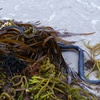
Yellow bellied sea snake’s epic Tasmanian swim
A RARE reptilian visitor has turned up on Tasmanian shores after a marathon swim from warmer waters, writes The Mercury. Read the full story about the yellow bellied sea snake here.



A RARE reptilian visitor has turned up on Tasmanian shores after a marathon swim from warmer waters, writes The Mercury. Read the full story about the yellow bellied sea snake here.
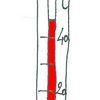
Want to know more about climate change but not sure where to start looking for info? Then this easy-to-read booklet (by the Australian Academy of Science) answers many questions surrounding climate change in Australia. Get some answers here!
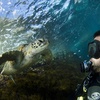
A new survey gauges the public's willingness to volunteer for marine science. The Marine Exchanges Survey is an Australian-first and aims to harness the power of ‘citizen science’. Observations from ocean users and beachgoers have enormous potential to increase knowledge about marine species along Australia’s coastal regions.
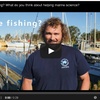
Marine ExChange are running a national survey of anyone who loves to fish, dive, boat, sail or just walk along the beach. Do the 2015 National Survey of Marine Users to be in the draw for thousands of dollars of great prizes! The survey will help researchers understand the if, how and why of public involvement in marine research. For more information, and to do the survey, click here.
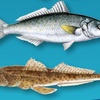
Flathead is the top catch by Tasmanian fishers, according to a new recreational fishing survey by the University of Tasmania's Institute for Marine and Antarctic Studies. Around one in four Tasmanians went fishing at least once in 2012; and mainly along the east or south-east coast. Read what Tasmanians are hooked on here.
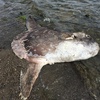
THE world’s heaviest species of fish has washed up on the shores of the River Derwent, prompting a call for beach combers to be on the lookout for more unusual sightings, writes The Mercury newspaper.
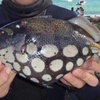
Steven 'Sealberg', a shark with a naughty nickname, and a wine bottle all made it onto Redmap’s annual Top 10 Oddest Sightings. This list is completely subjective. And mainly based on strange-looking species, odd photos or sightings with great stories behind them...
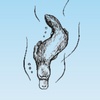
Citizen science is becoming an important tool for monitoring changes in the earth's vast oceans. And the traditional world of science is starting to take note. Redmap has written an article for the journal The Tasmanian Naturalist! The piece reviews how Redmap is collecting a long-term record of verified observations of out-of-range species that adds to the data available from traditional scientific surveys. Read the full article here.
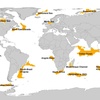
Researchers have mapped climate change hotspots in the world's oceans to allow better fisheries management and commercial fishing decisions, writes ABC News. Australian scientists led by Dr Gretta Pecl [Redmap founder!] at the University of Tasmania's Institute for Marine and Antarctic Studies (IMAS) have developed an approach to help fishery managers and the fishing industry adapt. Read the full story here.
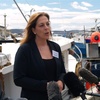
Redmap founder Gretta Pecl developed a method for rapidly assessing how sensitive to climate change our key commercial species are likely to be. In rapidly warming regions so much is changing - and fast - so we need quick methods to identify what species are most at risk in order to expend further research dollars wisely.